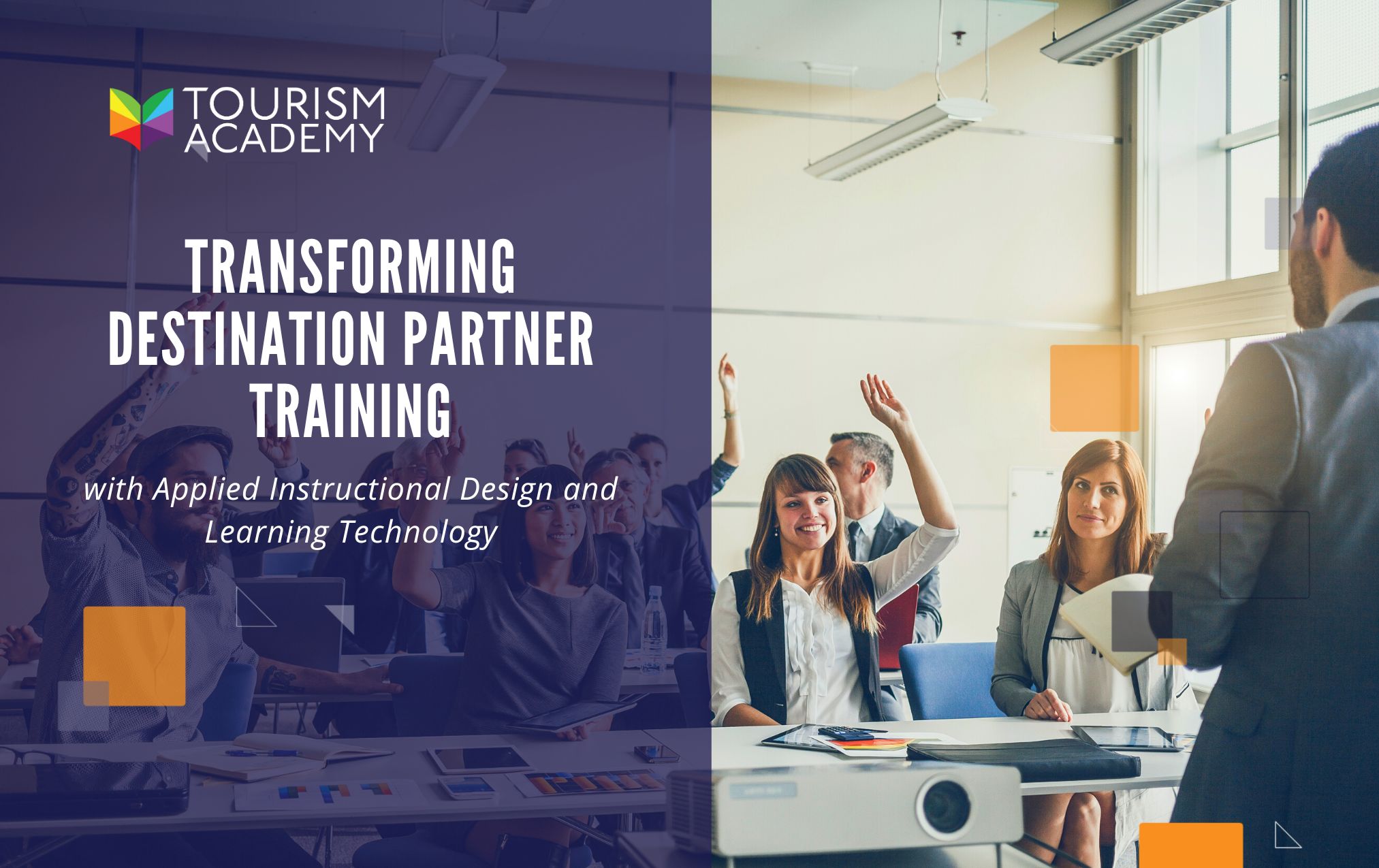
Transforming Destination Partner Training with Applied Instructional Design and Learning Technology
Destination Marketing Organizations (DMOs) play a crucial role in promoting and developing the tourism industry. They often provide partner training sessions, both in-person and online, to enhance the skills and knowledge of their stakeholders. The challenge is to make these training programs more transformative, engaging, and accessible. This article explores how DMOs can achieve this transformation by leveraging applied instructional design and learning experience technology through the Tourism Academy.
-
The Power of Applied Instructional Design:
- Understanding Stakeholder Needs: The first step in transforming DMO training is recognizing the unique needs of partners. Applied instructional design involves assessing the knowledge gaps, preferred learning styles, and goals of participants.
- Curriculum Development: The Tourism Academy can collaborate with DMOs to develop custom-curated training modules that address these specific needs. By tailoring the content, the training becomes more relevant and engaging for participants.
-
Embracing Learning Experience Technology:
- Gamification: Learning technology can introduce gamification elements into partner training. Gamified modules, quizzes, and challenges make the learning process fun and interactive, encouraging better retention and engagement.
- Virtual Reality (VR) and Augmented Reality (AR): The use of VR and AR can transport trainees to virtual destinations, providing a hands-on experience. This immersive approach can be particularly valuable for tourism-related training, allowing partners to explore destinations from anywhere in the world.
- Mobile Learning Apps: The Tourism Academy can develop mobile apps that offer on-the-go access to training materials. This ensures accessibility, allowing participants to learn at their convenience, even while traveling.
-
Enhancing Accessibility:
- Online Learning Platforms: The Tourism Academy can host training programs on an easy-to-navigate online platform. This enables DMO partners to access materials from anywhere, facilitating continuous learning.
- Accommodating Different Learning Styles: Learning experience technology can cater to diverse learning styles by incorporating video tutorials, written content, podcasts, and interactive quizzes.
- Multilingual Support: To reach a global audience, the platform can offer multilingual support, breaking down language barriers.
-
Fostering Collaboration and Networking:
- Virtual Conferencing: Webinar-style training can be transformed into engaging virtual conferences. The Tourism Academy can provide the necessary technology for real-time collaboration, discussions, and Q&A sessions.
- Partner Communities: Create an online community for DMO partners to connect, share experiences, and learn from each other. This networking aspect adds value to the training experience.
-
Continuous Assessment and Certification:
- Assessing Progress: Learning technology enables ongoing assessment of participants' progress, allowing DMOs to identify areas of improvement and adapt training content accordingly.
- Certification Programs: The Tourism Academy can offer certification for completing training modules successfully. This certification adds credibility to the partner's skills, benefiting both the individual and the DMO.
Conclusion: Transforming destination marketing partner training into transformative, engaging, and accessible programs is crucial for the growth and sustainability of the tourism industry. By collaborating with the Tourism Academy and utilizing applied instructional design and learning experience technology, DMOs can offer high-quality training experiences that empower their partners with the knowledge and skills needed to thrive in this dynamic industry. As Maya Angelou once said, "Do the best you can until you know better. Then when you know better, do better." It's time for DMOs to do better by embracing modern educational techniques and technologies to benefit the entire tourism community.

Leave a comment